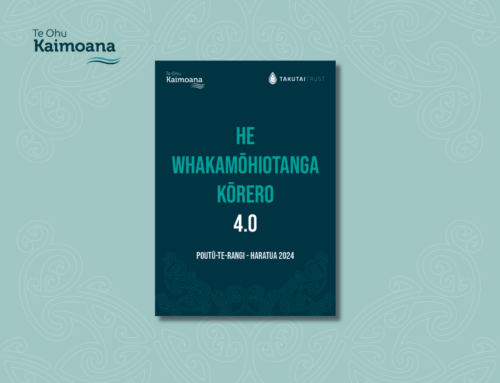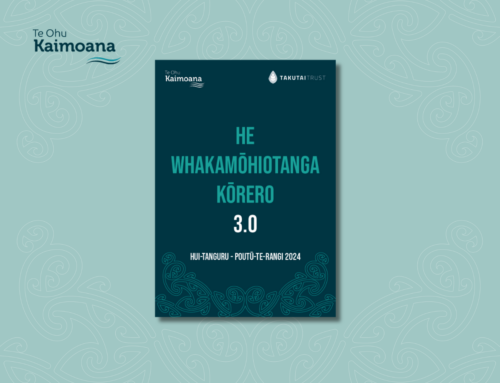Providing policy advice on issues affecting Māori fishing rights is one of the ways that Te Ohu Kaimoana works to protect and advance Māori interests in fisheries. Over January and February 2020, the policy team provided responses on nine different policy matters to four different government departments and two specialist groups (the Environment Select Committee and the Resource Management review panel).
The advice we provided ranged from comments on new global biodiversity targets, to the April Sustainability Round, and amendments to the Maori Commercial Aquaculture Claim Settlement Act 2004. It also includes a response on proposed reforms to the Resource Management Act 1991, Crown Mineral Act 1991, and Fisheries New Zealand’s Draft Inshore Finfish Fisheries Plan (click here to review the full list of responses).
The development or amendment of any policy must take into consideration obligations under Te Tiriti o Waitangi and ensure that policies don’t undermine the Māori Fisheries Settlement. In responding to these matters, we work with officials from Fisheries New Zealand, the Department of Conservation, and the Ministry of Foreign Affairs and Trade to ensure that these obligations are taken into account and woven into their policy development.
Representing Iwi views in our policy advice
We are mandated by 58 Iwi organisations and it is our responsibility to provide policy advice in line with their views and Māori principles. As part of our process, we build in time to consult with Iwi to seek input and feedback on advice that we want to provide to the Crown.
We base our advice on Te hā o Tangaroa kia ora ai tāua (the breath of Tangaroa sustains us). Te Hā o Tangaroa kia ora ai tāua is an expression of the unique and lasting connection Māori have with the environment. It embodies the importance of humanity’s interdependent relationship with Tangaroa to ensure our mutual health and wellbeing. As such, “conservation” is part of “sustainable use” and is carried out to sustainably use resources for the benefit of current and future generations.
These responses don’t seek to replace advice put forward by Iwi individually. Instead, it seeks to remind the Crown of its obligations under Te Tiriti and consider Māori principles and the views of Iwi in their policy development.
To find the full list of responses we provide to the Crown, click here.





